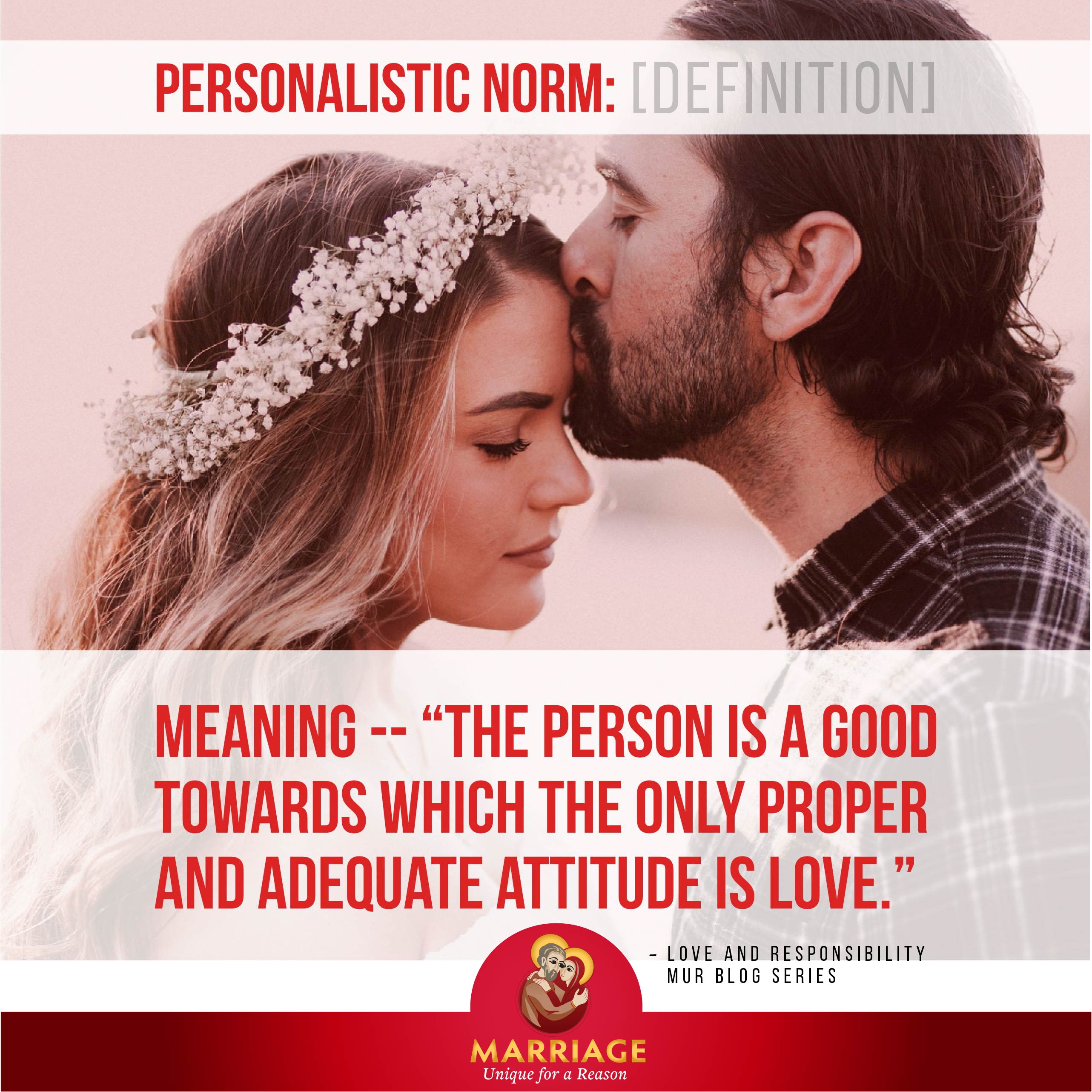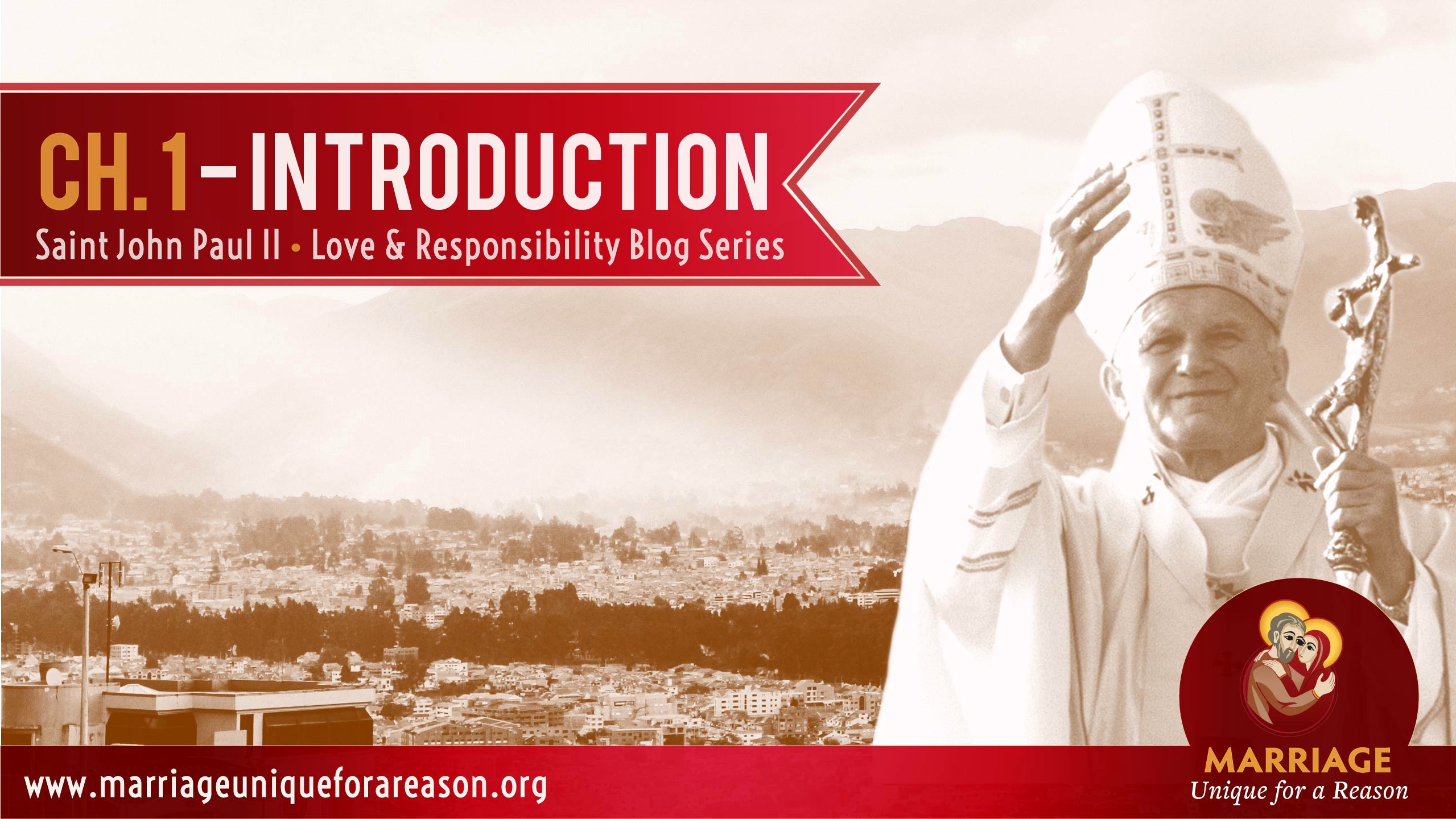Use v. Love: Love and Responsibility Series (Post #3)
Between ‘Use’ and ‘Love’:
The first distinction that Wojtyla makes in Love and Responsibility, between “use” and “love,” is one that we understand intuitively. No one wants to be used; It’s a terrible feeling! We commonly learn that pretty early on in life—maybe at the 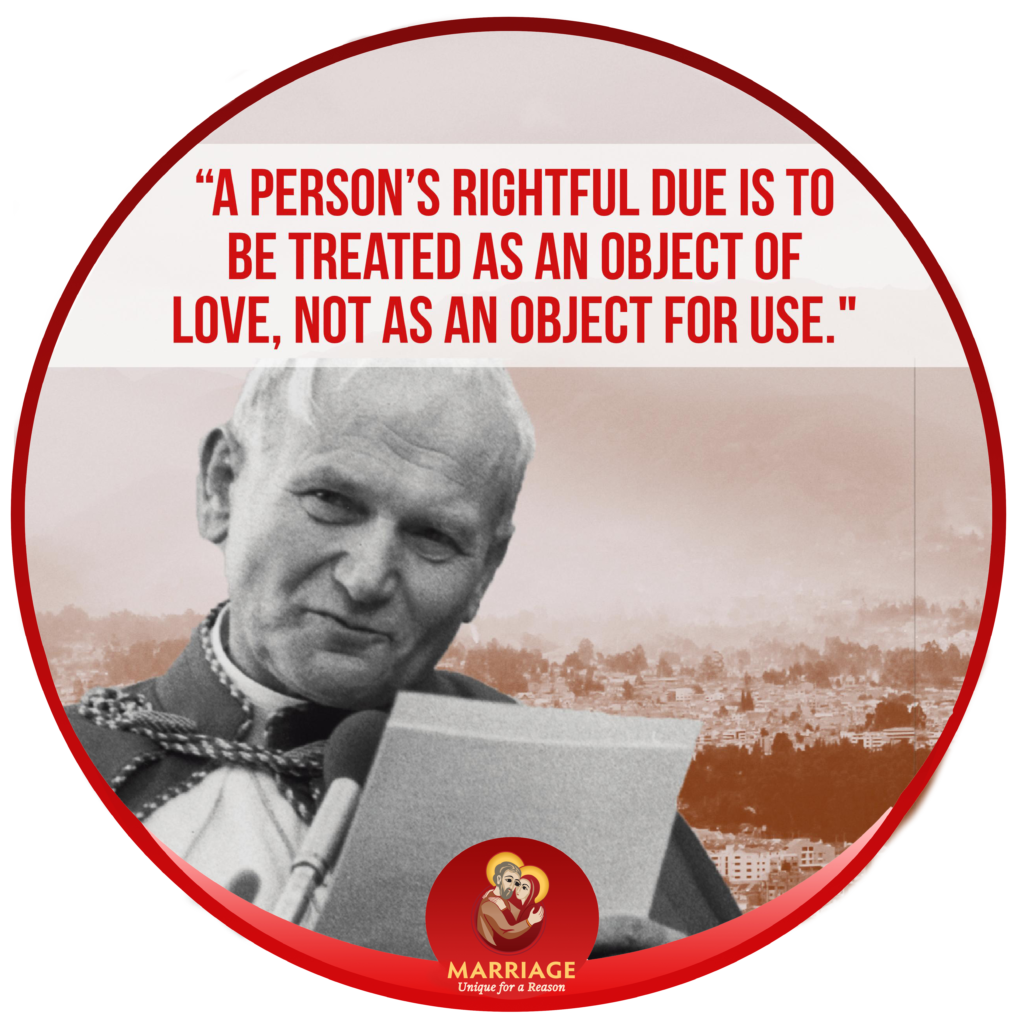 playground, or at a friend’s house—when we realize that the other kid only wants to play with us because we have the latest gadget that their parents won’t get for them. That’s such a small example, but these are real lessons in whether another person likes us for ourselves or only likes us for what we do for them.
playground, or at a friend’s house—when we realize that the other kid only wants to play with us because we have the latest gadget that their parents won’t get for them. That’s such a small example, but these are real lessons in whether another person likes us for ourselves or only likes us for what we do for them.
We all know that people can be used by others for sexual pleasure. This is not okay, even if the person consents to being used (such as in prostitution). A person has an inherent dignity that should rebel at even the suggestion that he or she should allow someone else to “use” them. But early childhood wounds, insecurity, or other factors may dull a person’s sense of how he or she deserves to be treated. In this section of Love and Responsibility, Wojtyla explains why using another person is incompatible with their dignity.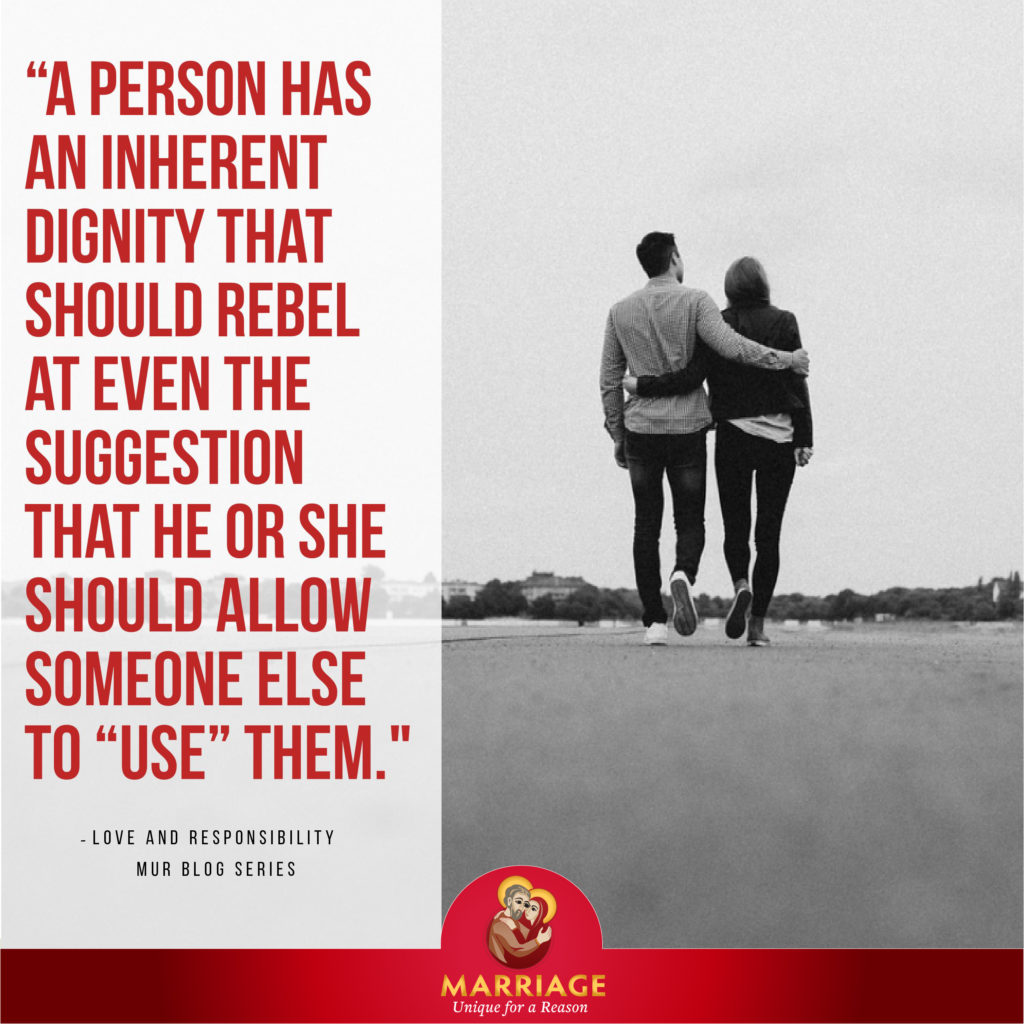
“To use means to employ some object of action as a means to an end—the specific end which the subject has in view.”[1] For example, I use a pencil to write on my calendar. The pencil is a means to the end of writing. My aim is to put something on my schedule; the pencil is just a means to accomplish that. In fact, a pen would do just as well. Chances are, I just picked up the closest tool, the closest object, that would do the job.
Karol Wojtyla’s Personalistic Norm:
When you think of it that way, it’s easy to see that a person shouldn’t be treated the same way as a pencil. Things are interchangeable, but persons aren’t. Wojtyla notes, “The sexual relationship presents more opportunities than most other activities for treating a person—sometimes even without realizing it—as an object of use.”[2] He calls us to be on guard against this tendency, which is in all of us to some extent.
There are lots of reasons why we may be tempted to treat another person as an object—as a means to our own pleasure or happiness. We may be more focused on our own feelings of loneliness or desire than on the actual person in front of us. But part of love is “a readiness to subordinate oneself” to the value of the person.[3] In other words, love means treating someone the way they deserve to be treated. If you love a person, you don’t want to use them—even if they were to mistakenly agree to be used.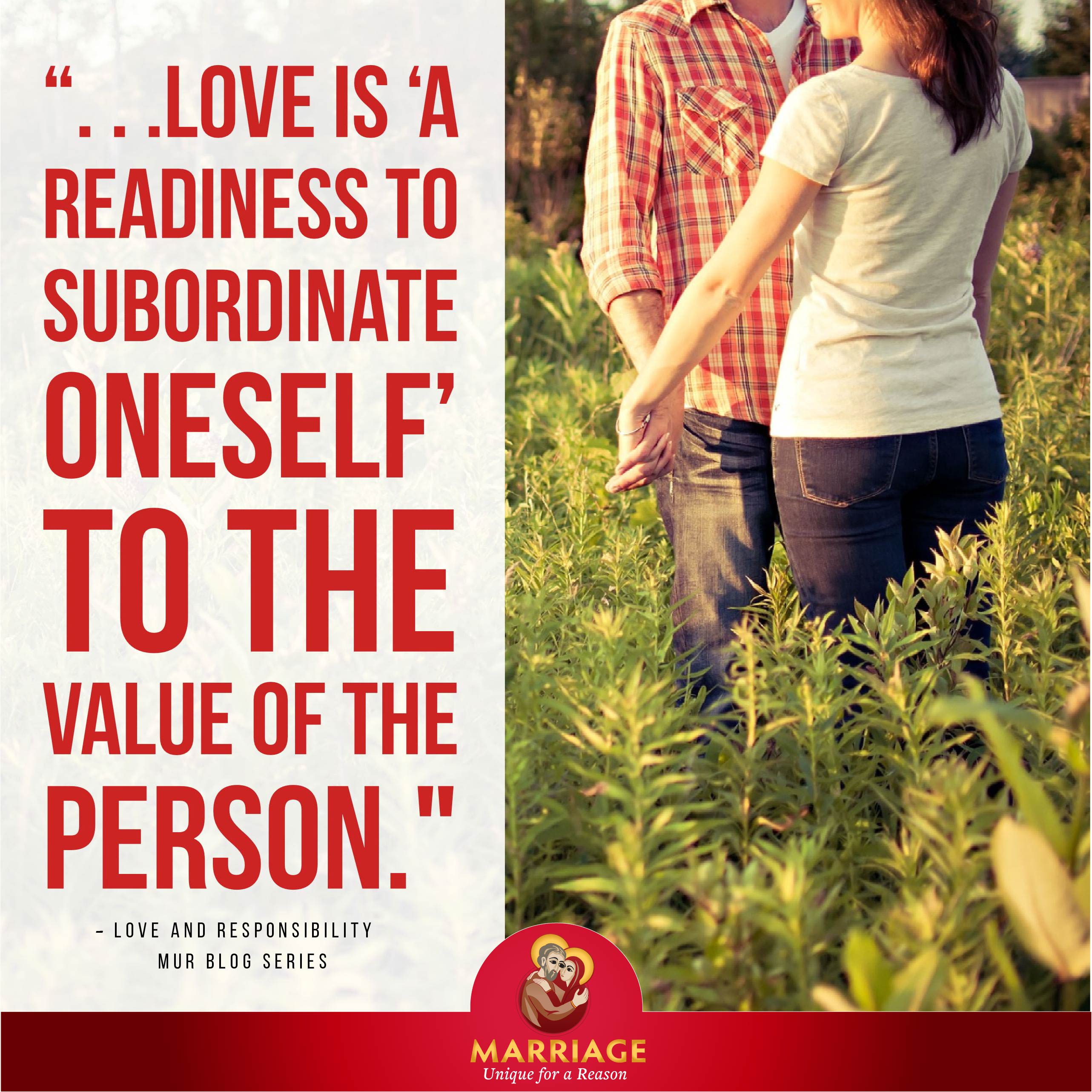
So we come to what Wojtyla terms the “personalistic norm”—the way persons ought to be treated: “the person is a good towards which the only proper and adequate attitude is love.”[4] The personalistic norm is essentially the same as God’s commandment to love. You could even think of it as the Golden Rule: treat others the way you want to be treated. But again, sometimes we mistakenly forget that we are children of God and should be treated with love and respect—sometimes we settle for being treated “okay,” which means we might think treating others just “okay” is fine. Instead, it might help to think about a young child whom you love—whether yours, or one in your family—and how you want them to be treated. This can be clarifying, kind of like when you ask a teenage boy how his little sister should be treated on a date. We often are more protective of others’ hearts than our own.
To conclude: Treating the person with love (and not using them) is a step in fulfilling God’s call to love our neighbor.
[1] Wojtyla, Karol. Love and Responsibility (San Francisco: Ignatius Press, 1993), p. 25.
[2] Ibid, p. 30.
[3] Ibid, p. 31.
[4] Ibid, p. 41.
Archive
Person as Subject and Object: Love and Responsibility Series (Post #2)
As mentioned in the Introduction, Karol Wojtyla (St. John Paul II) is interested in what (who) the human person is. What makes us human? Are there ways of acting that are “less” or “more” human? How do we know?
Person as Subject and Object:
The first section of Love and Responsibility is entitled “The Person and the Sexual Urge,” and the first topic is the person as both the subject (do-er) and the object (done-to) of actions. If I hug you, then I am the subject of that action, and you are the object. That does not make you an object in the sense that I have dehumanized you (we’ll talk about that later), but simply is a way of saying that “every subject also exists as an object, an objective ‘something’ or ‘somebody.’”[i]
Man as ‘Someone’ Not ‘Something’:
But man* is an object in a different way from everything else in the world, because he has an inner life. He is “someone,” not “something.” The term “person” developed out of a desire to express this difference. 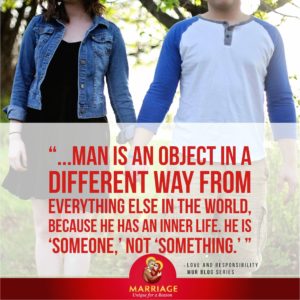 Animals, for all their individual quirks and affections, are not persons. A person—and here Wojtyla uses Boethius’s definition of “an individual being of a rational nature”—has a spiritual character. He has an inner life that centers around truth and goodness.[ii]
Animals, for all their individual quirks and affections, are not persons. A person—and here Wojtyla uses Boethius’s definition of “an individual being of a rational nature”—has a spiritual character. He has an inner life that centers around truth and goodness.[ii]
It is this inwardness that makes it even possible to talk about ethics. A person has the power of self-determination. He can choose. “No one else can want for me. No one can substitute his act of will for mine,” writes Wojtyla. [iii]
Self-Sacrifice Found in Human Witness:
Often the most amazing stories we hear and share are stories of people who refuse to want or choose something, even their own life, over another value that they hold dear. For example, St. Maximillian Kolbe wanted life for another prisoner over his own. Or consider the book and movie “Unbroken,” where Louie Zamperini survives a plane crash, floats on the sea 47 days, and suffers in a series of prisoner-of-war camps, but never gives up his desire to live. Or remember Corrie ten Boom, who hid many Jewish people in her home in WWII, knowing that at any moment she could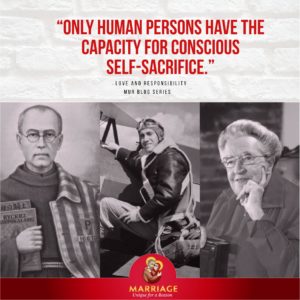 be caught. Only human persons have the capacity for conscious self-sacrifice.
be caught. Only human persons have the capacity for conscious self-sacrifice.
A person’s capacity to freely choose an action is the foundation of all ethics. When the object of a person’s action—that which is directly affected by what a person does—is another person, how much more important it is to know whether that action is good or evil. And since sexual morality almost always centers on the actions of one person with another person, then knowing what a person is, and how a person deserves to be treated, is crucial.
*I’m using “man” in its inclusive meaning of “human being, male or female.” It’s handy, less wordy, and conveys an idea of the common nature that we all share.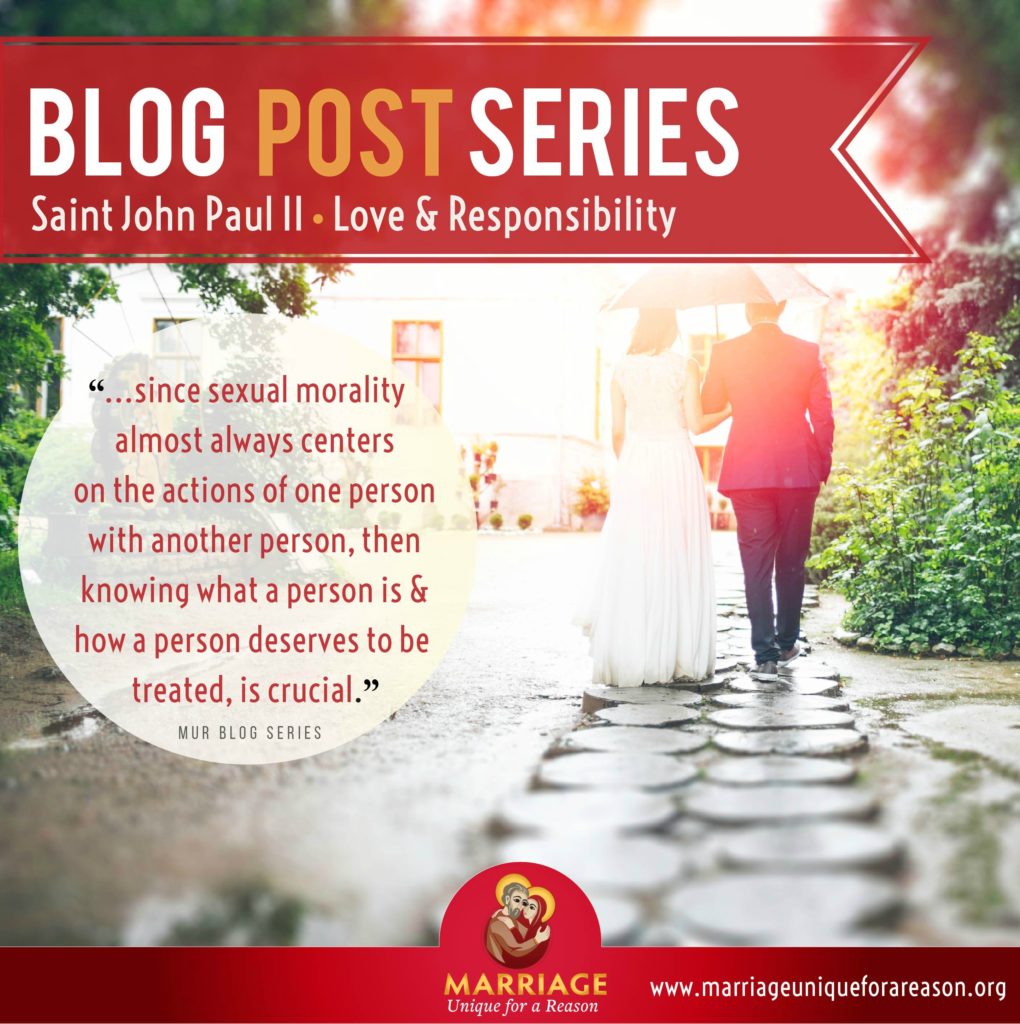
Click here to read the latest (all) –> Love and Responsibility Blog Series
[i] Wojtyla, Karol. Love and Responsibility (San Francisco: Ignatius Press, 1993), p. 21.
[ii] Ibid, p. 23.
[iii] Ibid, p. 24, emphasis original.
Archive
Love and Responsibility Series: Introduction
His Book – Love and Responsibility (1960):
First published in 1960, Love and Responsibility by Karol Wojtyla (St. John Paul II) has never ceased to be relevant as an analysis of the metaphysical and ethical 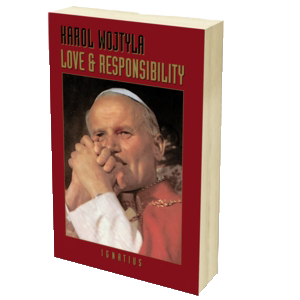 dimensions of love. Wojtyla presented the themes of this work in his university lectures in Lublin. They are the fruit, he tells us, of conversations with and pastoral care of many couples over his years as a priest. “It is… the result above all of an incessant confrontation of doctrine with life (which is just what the work of a spiritual advisor consists of).”[i]
dimensions of love. Wojtyla presented the themes of this work in his university lectures in Lublin. They are the fruit, he tells us, of conversations with and pastoral care of many couples over his years as a priest. “It is… the result above all of an incessant confrontation of doctrine with life (which is just what the work of a spiritual advisor consists of).”[i]
Philosophical Approach to Sexual Morality:
Explaining his philosophical approach to sexual morality, Wojtyla states that his aim is to “justify, interpret, and explain” the norms of Catholic sexual morality on the basis of personhood.[ii] He writes, “Sexual morality is within the domain of the person. It is impossible to understand anything about it without understanding what the person is, its mode of existence, its functioning, its powers.”[iii]
The Human Person – Personalism:
In other words, to understand Catholic sexual morality, you have to understand what (who) the human person is.[iv] The approach Wojtyla takes in Love and Responsibility is called personalism. 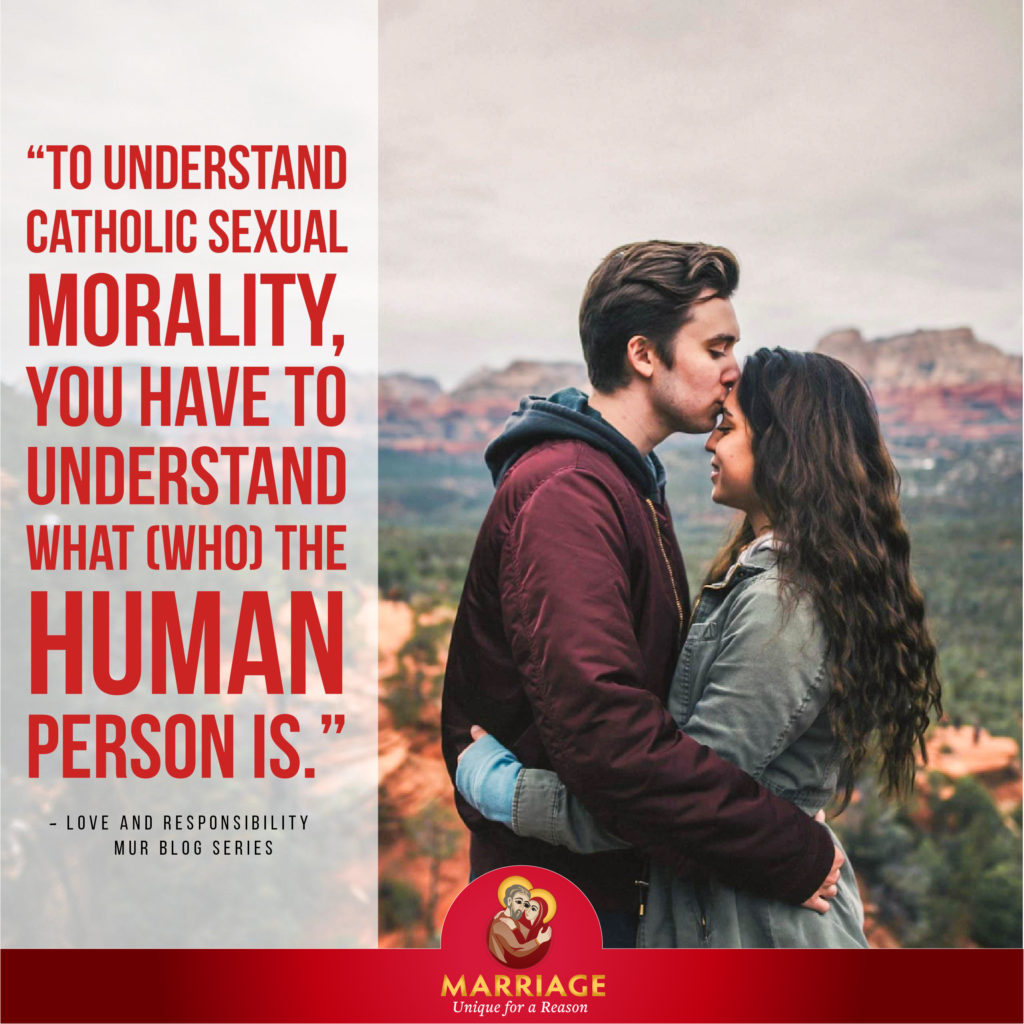
For the next few weeks, MUR will look at Love and Responsibility and its contributions to understanding the dynamic relationship between man and woman. 
[i] Wojtyla, Karol. Love and Responsibility (San Francisco: Ignatius Press, 1993), p. 15.
[ii] Ibid, p. 16.
[iii] Ibid, p. 18.
[iv] When we speak of persons, “who” is usually the correct pronoun. But in philosophy we often ask what something is in order to get to the core of it, and it is in this sense that we ask “What is the human person?” We are basically asking, what is the nature of humanity? What is the thing that we all share, that makes us all human persons?

